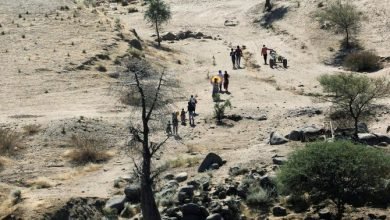international
Around 1.85 million people affected by cyclone in Mozambique: U.N.
[su_label type=”info”]SMA News – Agencies [/su_label][su_spacer size=”10″] [su_dropcap]A[/su_dropcap]bout 1.85 million people have now been affected by Cyclone Idai and its aftermath in Mozambique alone, U.N. humanitarian agency OCHA said on Tuesday, as aid workers raced to fathom the scale of the disaster and determine what help is most urgently needed.
“Some will be in critical, life threatening situations. Some will sadly have lost their livelihoods, which whilst an appalling tragedy is not immediately life threatening,” OCHA coordinator Sebastian Rhodes Stampa said.
Idai flattened homes and provoked widespread flooding when it made landfall near the Mozambique port city of Beira on March 14. It then ripped through neighboring Zimbabwe and Malawi.
At least 686 people have been killed by the storm and its aftermath across the three countries, a figure that could rise as relief workers prepare for what they say are inevitable outbreaks of diseases including malaria and cholera.
“We can determine the size, we can’t determine the circumstance. So we’re now going out on the ground, dropping people off from helicopters to determine what the critical needs are,” Stampa said. Mozambique remains the hardest hit by the humanitarian crisis with tens of thousands of homes destroyed and hundreds of thousands displaced across an area of some 3,000 square km – roughly the size of Luxembourg.
“Some will be in critical, life threatening situations. Some will sadly have lost their livelihoods, which whilst an appalling tragedy is not immediately life threatening,” OCHA coordinator Sebastian Rhodes Stampa said.
Idai flattened homes and provoked widespread flooding when it made landfall near the Mozambique port city of Beira on March 14. It then ripped through neighboring Zimbabwe and Malawi.
At least 686 people have been killed by the storm and its aftermath across the three countries, a figure that could rise as relief workers prepare for what they say are inevitable outbreaks of diseases including malaria and cholera.
“We can determine the size, we can’t determine the circumstance. So we’re now going out on the ground, dropping people off from helicopters to determine what the critical needs are,” Stampa said. Mozambique remains the hardest hit by the humanitarian crisis with tens of thousands of homes destroyed and hundreds of thousands displaced across an area of some 3,000 square km – roughly the size of Luxembourg.






